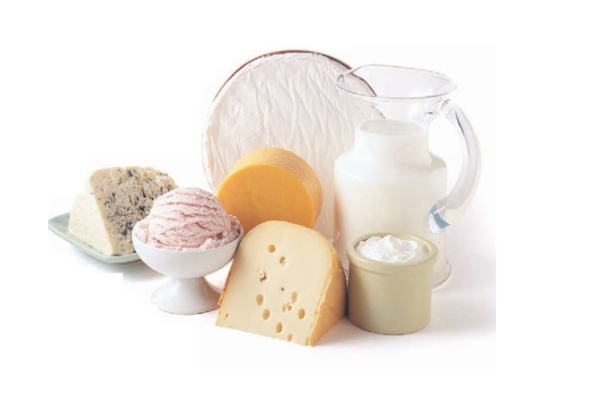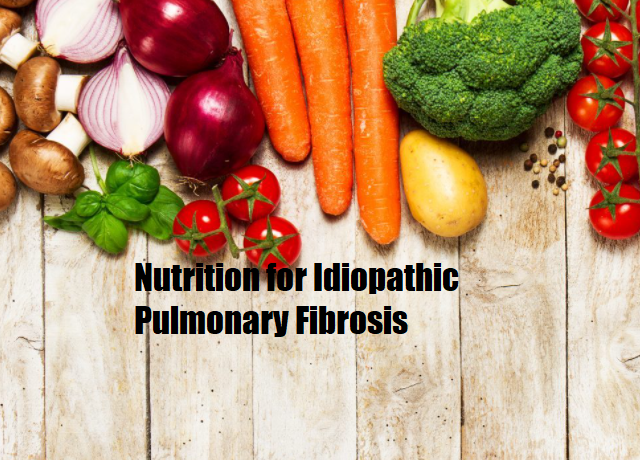Many people with Idiopathic Pulmonary Fibrosis always search for a special diet for PF. But the best PF diet is the one that helps you maintain a healthy weight for your body and makes you feel the best.
Since appetite fluctuations can lead to unexplained weight loss over time, people with pulmonary fibrosis should try to eat five to seven smaller meals a day every two to three hours instead of three big meals and a snack. Eating smaller meals will take less effort and should keep you satisfied until your next meal or snack.
If you are overweight, it can create more pressure on your lungs which can make it even harder to breathe. It also increases your risk for other diseases such as diabetes and heart disease. So, dietary changes may be necessary to ensure your diet is low in saturated and trans fats, sodium and cholesterol, and doesn’t contain a lot of added sugar, which follows the same dietary guidelines suggested to prevent heart disease, obesity and cancer. Increasing your water intake should also be a major priority because it can help thin secretions and make coughs more productive.
Nutrition Tips for Idiopathic Pulmonary Fibrosis
These are some nutritional or diet tips for Idiopathic pulmonary fibrosis patients. These tips are help to maintain healthy weight.
Lean Protein
Lean protein should contain less than 10 grams of total fat with 45 percent or fewer grams in the form of saturated fat and less than 95 milligrams of cholesterol per 3.5-ounce serving. Keep in mind that a lot of protein sources meet this requirement, but a good pulmonary fibrosis diet targets specific choices such as:
- Fatty fish (salmon, tuna, sardines, mackerel, trout)
- Chicken breast without skin
- Eggs
- Beans
- Peas
Vegetables
Vegetables should be considered before fruits when managing pulmonary fibrosis symptoms. Consuming a colorful variety of vegetables is best because each of them contains different antioxidants, minerals and vitamins that provide numerous health benefits. Plus, they can help you meet your daily fiber goal. Some of the best choices to include on a revolving basis are:
- Bell peppers
- Carrots
- Celery
- Leafy greens
- Squash
- Sweet Potatoes
Vegetable juices, such as beet, cactus, carrot and tomato juice, can also be a great alternative.
Fruit
Fruit offers many health benefits as well. Fresh and frozen fruit is best, but canned may be used in a pinch. Just like vegetables, every variety of fruit is loaded with a different combination of antioxidants, vitamins and minerals, and all of them are good sources of fiber, which helps the body function at its optimum level. The most commonly recommended fruits for pulmonary fibrosis include:
- Citrus fruits (grapefruit, oranges, lemons, limes)
- Bananas
- Berries
- Cantaloupe
- Cherries
- Kiwi
- Mangos
- Pineapple
Fruit juices can also be added, but these should be consumed in moderation. Some examples include orange, lemon and cranberry juice. Consider experimenting with various fruits and vegetables to make nutrient-packed smoothies.
Low-Fat Dairy Products

Dairy products are not good choice, when it comes to chronic lung diseases. In the past, milk was incorrectly blamed for causing increased mucus production, but this claim was proven to be unfounded.
- Milk
- Yogurt (Regular or Greek)
- Cheese
- Powdered milk
- Non-dairy alternatives, like Almond milk, Soy milk, etc.
The caloric benefits of this food group are why it’s highly recommended for people with pulmonary fibrosis.
Whole Grains
Whole grains come in a variety of forms and are praised for their nutrient and fiber-rich content. Eating whole grains can make you feel fuller faster and for longer, which is extremely beneficial for pulmonary fibrosis patients who struggle to with appetite loss. Some of the most commonly recommended whole grain foods include:
- Barley
- Breads and cereals
- Brown rice
- Oatmeal
- Popcorn
- Wild rice
Whole grains offer additional benefits as well. For example, besides helping with digestion, whole grains can help lower cholesterol levels and even reduce inflammation, which can be a concern for patients with chronic lung diseases.
Nuts and Seeds
Nuts and seeds are a valuable protein source in addition to containing a number of vitamins, minerals and healthy fats. The best nuts and seeds for this diet are:
- Almonds
- Walnuts
- Chia seeds
- Flaxseed
Nuts and seeds are also a good source of fiber, so they’ll help fill you up, which can be a challenging proposition for some people with pulmonary fibrosis.
Healthy Fats
Healthy fats are classified as either monounsaturated or polyunsaturated fats. Some recommended healthy fats include Omega-3s, Omega-6s and several oil varieties, including olive, hemp and flaxseed. These fats are beneficial to people with pulmonary fibrosis primarily due to their ability to reduce bad (LDL) cholesterol.
Maintaining proper weight is important in the case of Idiopathic Pulmonary Fibrosis patients. If you are underweight then you have the chances of weakening of the muscles, risk for diseases such as osteoporosis, and also if you are over weight then have chances of other diseases such as diabetes and heart disease. So, these tips help to maintain healthy body weight which may reduce the Idiopathic Pulmonary Fibrosis and other diseases.





